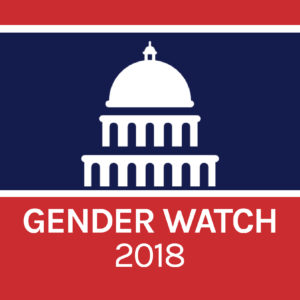This past Tuesday, 28-year old Alexandria Ocasio-Cortez beat a 10-term incumbent to win the Democratic primary in New York’s 14th congressional district. If elected (which seems likely – Cook Political Report rates the district D +28), Ocasio-Cortez will become the youngest woman ever elected to the U.S. House of Representatives and one of the few millennial women to take her seat in the Capitol.
Much has been made of the record number of women running for office in 2018, many of whom are jumping into politics at a younger age than previous generations did. It makes sense more millennials are running for office: millennials are approaching Baby Boomers as the largest generational voting bloc, and currently have more representation in the work force than any other generation.
Previous Barbara Lee Family Foundation research has shown that a certain type of woman candidate appeals to voters: a well-educated, married 55-year-old with experience in office, a profile impossible for millennial women (21-37 years old) to match. However, the Barbara Lee Family Foundation has research-backed tips to help millennial women overcome voter expectations of what a politician looks like.
Millennial women are more likely than their older counterparts to have either no children or be mothers of young children: according to Pew Research, more than 1 million millennial women are becoming mothers every year. Barbara Lee Family Foundation research shows that voters have concerns about women candidates in these family situations. Voters worry that women candidates who have never been married and who don’t have children will not be able to truly understand the needs of families. But if a woman does have children, voters worry about the effect of running for office on a candidate’s kids, especially if they are young. It’s not that voters don’t think women can have it all – they’re just pretty sure it’s impossible.
A tip for any family situation? After sharing personal values and experiences related to family, get right back to the issues. While Modern Family: How Women Candidates Can Talk about Parenting, Politics, and Their Personal Lives goes into detail about how to address voter concerns about different family makeups, it emphasizes that the most important thing to do is to have a plan, both for how you’re going to balance work and family obligations and for how you’re going to talk about your family on the campaign trail.
Millennial women may also face heightened scrutiny about their qualifications for office, especially with society’s tendency to equate youth with inexperience. Barbara Lee Family Foundation research has shown time and again that women candidates have to do more to prove they are qualified; for men, their qualification is assumed. This cycle, many millennial women are running for office for the first time; while that may make it more difficult to prove their qualifications, it is by no means impossible.
Opportunity Knocks: Now is the Time for Women Candidates found that now is a uniquely favorable time for women on both sides of the aisle because voters see women candidates as “different” – a vote for a woman is a vote to shake up the system and change the status quo. Voters are open to candidates who haven’t held office if those candidates highlight their local accomplishments. Working in the community as a leader; owning a business and creating jobs; or seeing the impact of an issue and taking action all help a woman showcase her qualifications. This research emphasizes that women with all different backgrounds can succeed – they have the opportunity to be 360-degree candidates, using the whole of their experiences to connect with voters.
Millennials are poised to soon become the largest living generation in the United States, yet only two millennial women currently serve in Congress. The 2018 election certainly has the potential to change that, with an influx of millennial women running for office across the country. However, change will involve directly addressing voter concerns, reminding them that age is just a number, not a prerequisite for public office.


 From March to December 2018, the
From March to December 2018, the